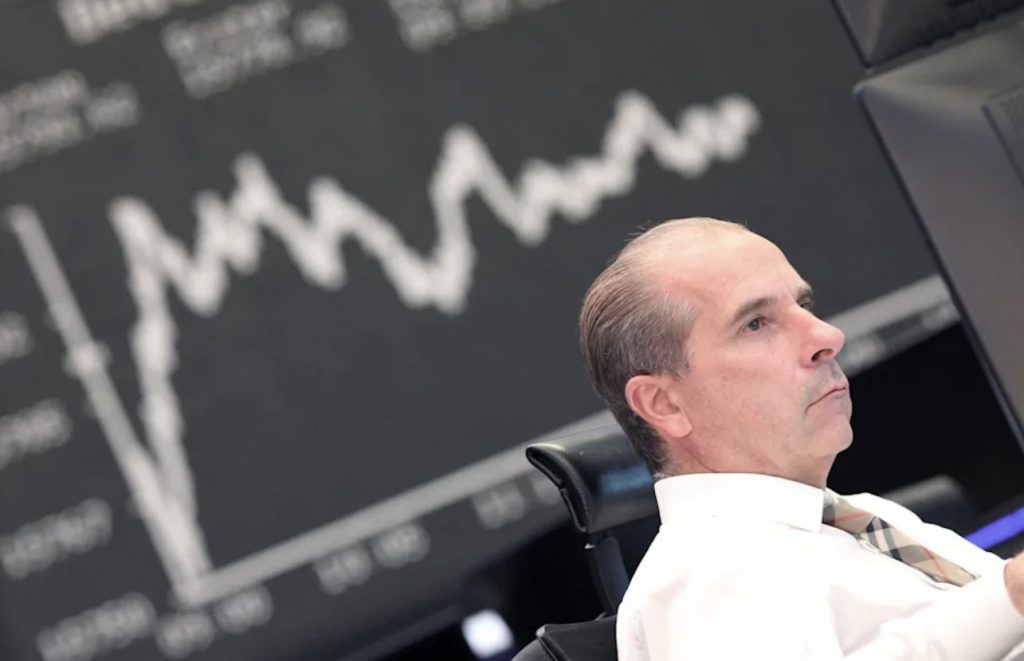
There was blood in the markets on Friday, as European stocks dragged lower after posting their first negative month since January.
It came as Eurozone inflation hit its highest level in 13 years due to surging energy prices. According to Eurostat, headline inflation came in at 3.4% last month, the highest level since September 2008 when inflation stood at 3.6%.
Economists warned inflation will soon top 4%, forcing the ECB’s rate-setters to scale back its €1.85tn (£1.58tn, $2.15tn) bond buying programme.
In London, the FTSE 100 (^FTSE) fell 0.8% on the day, while the CAC (^FCHI) was 0.1% lower in Paris and the German DAX (^GDAXI) was also 0.8% lower.
Travel and leisure stocks led the fallers, along with financial companies and industrial firms.
“Investors are now nervously eyeing October, and wondering perhaps if this could be the beginning of further weakness,” Michael Hewson of CMC Markets said.
“As we head into the final quarter of 2021 the gains year to date are still pretty decent. It raises the question of how much more is left in the tank, and whether this October will live up to the reputation of Octobers past and deliver a huge curveball, as well as giving investors an anxiety attack.”
Surging energy prices, supply chain disruptions, and concerns about inflation will be keeping traders on their toes.
Across the pond, the S&P 500 (^GSPC) rose 0.6% by the time of the European close, while the tech-heavy Nasdaq (^IXIC) fell 0.3%. The Dow Jones (^DJI) edged 0.8% higher.
The S&P 500 ended September down 4.8%, its first monthly drop since January and the biggest since March 2020. It was a tumultuous month, and a quarter that was surrounded by COVID-19 concerns, inflation fears and budget wrangling in Washington.
On Thursday Federal Reserve chair Jerome Powell maintained that surging inflation data is being caused by supply chain challenges and that they will abate. Under questioning from the House Financial Services Committee, Powell said he expects inflation to ease in the first half of 2022.
Asian markets tumbled overnight, taking their cue from Wall Street’s worst monthly loss since the beginning of the pandemic.
In Japan, the Nikkei (^N225) slumped 2.3% while shares in Taiwan, Southeast Asia and Australia followed suit. The Hang Seng (^HSI) and the Shanghai Composite (000001.SS) were both closed for holidays.
It came as Asia’s manufacturing activity stagnated last month, after factories were shut in response to the new waves of coronavirus.
Surveys released on Friday showed countries where large outbreaks of the Delta variant receded saw an improvement in activity, such as Indonesia and India. But factory activity in September shrank in Malaysia and Vietnam.
In Japan, activity grew at the slowest rate in seven months, as the global semiconductor shortage, and supply disruptions weighed on performance.